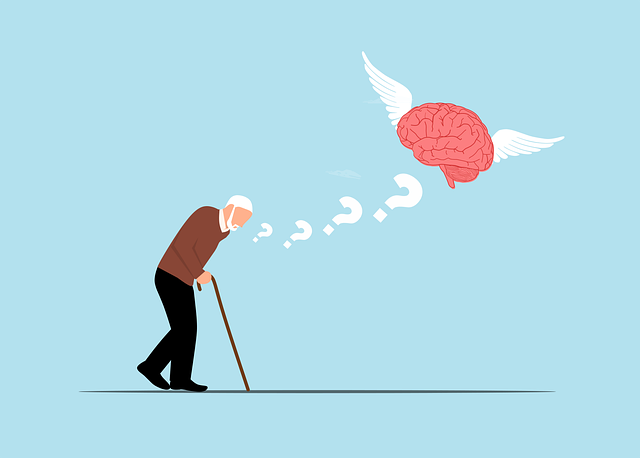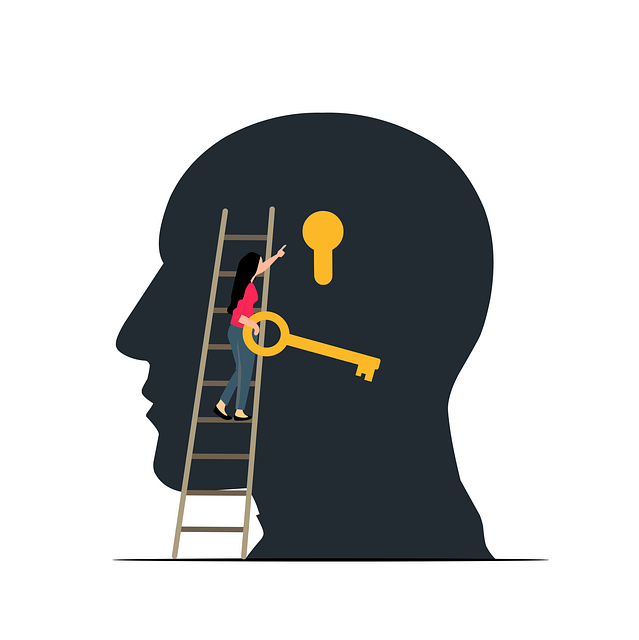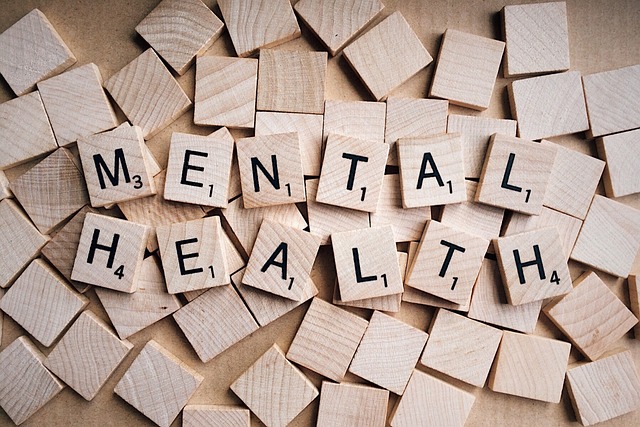Adolescent teens face unique emotional challenges due to hormonal changes and a developing prefrontal cortex, making them vulnerable to anxiety, depression, and peer pressure. Effective therapy for postpartum depression among teens requires understanding these dynamics. Mind Over Matter principles, including mindfulness, coping strategies, and culturally sensitive self-care practices, empower adolescents with emotional resilience and intelligence. Healthcare provider training ensures respectful support addressing diverse cultural backgrounds. Specialized therapeutic interventions like compassion cultivation, positive thinking, and mindfulness meditation help teen moms manage emotions, improve bonding with infants, and overcome PPD symptoms. Teaching emotional control through EI in education enhances their overall development. Tailored risk management planning supports teens in coping with stress, promoting adaptability. Comprehensive therapy combining cognitive-behavioral approaches, mindfulness training, and trauma support prevents issues like postpartum depression later in life, with programs offered by organizations significantly contributing to teen resilience.
Emotion regulation techniques are essential tools for navigating life’s challenges, especially for adolescent teens and individuals recovering from postpartum depression. This article delves into the crucial role of therapy in managing these conditions, offering practical strategies for teaching emotional control. We explore effective methods to support teen mental health, bridging theory and practice. By understanding the unique needs of adolescents and postpartum parents, we can provide targeted interventions, fostering resilience and enhancing overall well-being.
- Understanding Emotion Regulation for Adolescent Teens
- The Role of Therapy in Treating Postpartum Depression
- Effective Techniques to Teach Emotional Control
- Supporting Teen Mental Health: From Theory to Practice
Understanding Emotion Regulation for Adolescent Teens

Adolescent teens face unique challenges when it comes to emotion regulation due to significant hormonal changes and the development of their prefrontal cortex, responsible for rational decision-making. This age group is often vulnerable to intense emotions, such as anxiety and depression, which can be exacerbated by peer pressure and the quest for identity formation. Understanding these dynamics is crucial in providing effective therapy for adolescent teens, especially those dealing with postpartum depression.
The concept of emotion regulation involves teaching teens mindfulness and coping strategies, known as Mind Over Matter principles. These include Self-Care Practices tailored to their needs and cultural backgrounds. Healthcare Provider Cultural Competency Training plays a significant role here, ensuring that therapists are equipped to offer sensitive support while respecting diverse cultural perspectives. By incorporating these techniques, adolescents can develop the skills necessary to navigate life’s challenges with greater resilience and emotional intelligence.
The Role of Therapy in Treating Postpartum Depression

Postpartum depression (PPD) is a significant mental health challenge that can greatly impact adolescent teens and their families. In addressing this complex issue, therapy plays a pivotal role in providing much-needed support and guidance. For teenage mothers struggling with PPD, specialized therapeutic interventions are essential to help them navigate this difficult period.
One effective approach within the realm of therapy is the integration of compassion cultivation practices, positive thinking, and mindfulness meditation. These evidence-based techniques empower teens to develop emotional resilience and self-compassion. Through therapy sessions, they learn to recognize and manage their emotions healthily, fostering a sense of inner calm and well-being. By combining these strategies, therapists can assist adolescent teens in overcoming PPD symptoms, improving their overall mental health, and enhancing their ability to bond with and nurture their infants.
Effective Techniques to Teach Emotional Control

Teaching emotional control to adolescent teens is a vital aspect of their overall development and well-being, especially when considering the unique challenges they face during this transformative period. Effective techniques can empower young individuals to navigate their emotions healthily, preventing potential issues like postpartum depression later in life. One powerful approach is incorporating emotional intelligence (EI) into education. By enhancing EI skills, teens learn to recognize and understand their feelings, as well as those of others. This fosters empathy and promotes better interpersonal relationships.
Self-care practices are another essential tool for emotion regulation. Encouraging adolescents to engage in activities that promote mental relaxation, such as mindfulness exercises, meditation, or creative outlets, can significantly improve their emotional resilience. Additionally, risk management planning tailored for mental health professionals plays a crucial role in supporting teens. These strategies help young people anticipate and cope with stressful situations, fostering a sense of control and adaptability.
Supporting Teen Mental Health: From Theory to Practice

Teen mental health is a critical area that demands attention, especially with the increasing rates of anxiety and depression among adolescents. Emotion regulation techniques offer a powerful tool in supporting young individuals to manage their emotional well-being. These evidence-based practices have been successfully implemented in various therapeutic settings, including schools and community centers. By teaching teens strategies to recognize and control their emotions, professionals can empower them to navigate life’s challenges more effectively.
In practice, therapy for adolescent teens often involves a combination of cognitive-behavioral techniques, mindfulness training, and trauma support services tailored to individual needs. Addressing postpartum depression, stress management workshops, and risk assessment are essential components of comprehensive mental health care. Organizations offering such programs contribute significantly to fostering resilience among teens, enabling them to lead healthier and more fulfilling lives.
Emotion regulation techniques play a pivotal role in addressing mental health challenges such as postpartum depression and supporting adolescent teens’ well-being. As highlighted in this article, understanding these techniques and their application through therapy can significantly impact positive outcomes. By integrating evidence-based practices into everyday life, we can empower individuals to navigate their emotions effectively, fostering resilience and overall mental health, especially among vulnerable populations like teen girls. Through continued research and accessible resources, promoting emotional well-being becomes a collective effort, ensuring a brighter future for all.














